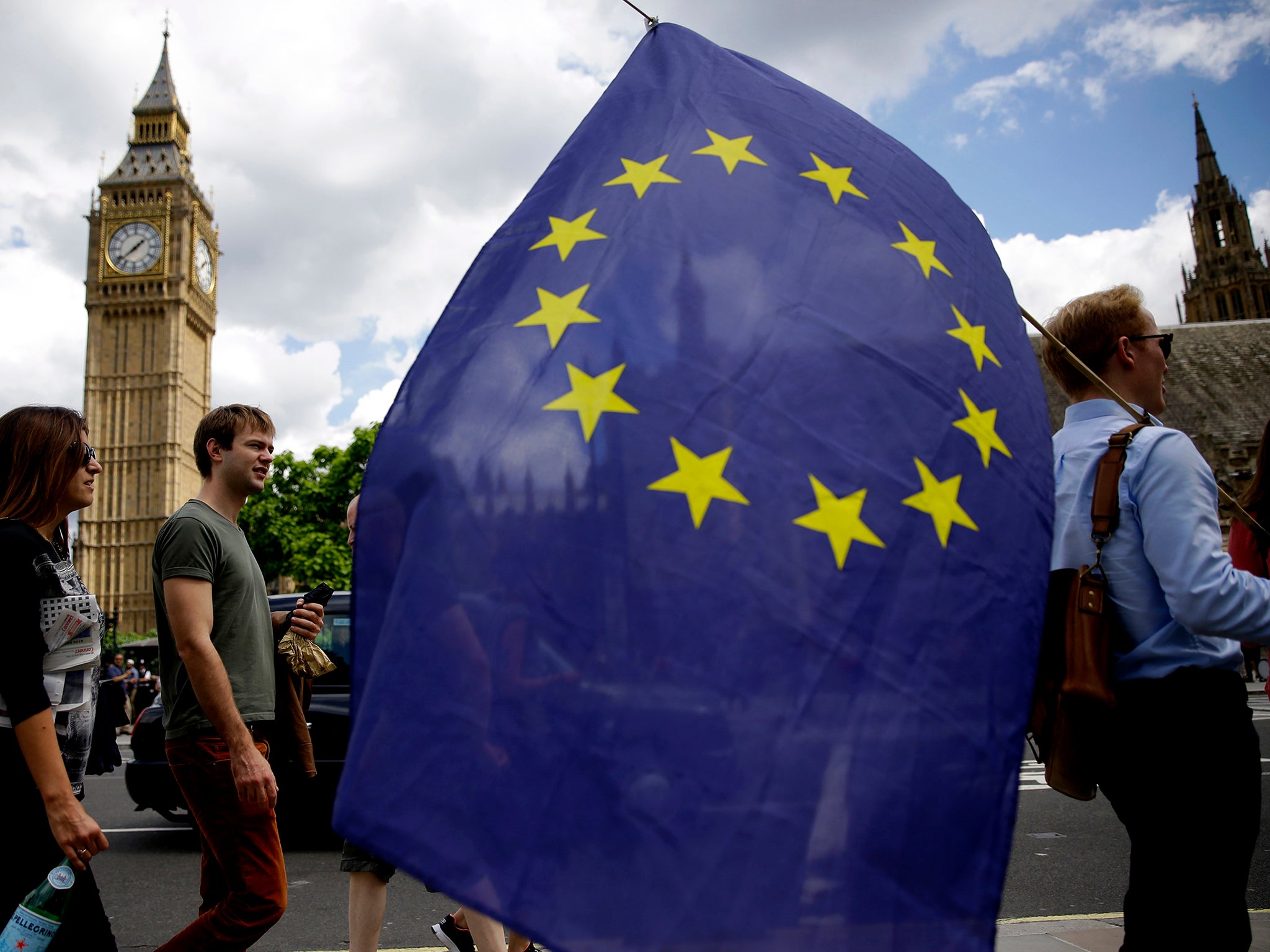Politicians are trading with the lives of our friends and neighbours
If renegotiating our relationship with the European Union means tightening visa rules, 88 per cent of Europeans living and working in the UK will no longer qualify to hold their own job

Your support helps us to tell the story
From reproductive rights to climate change to Big Tech, The Independent is on the ground when the story is developing. Whether it's investigating the financials of Elon Musk's pro-Trump PAC or producing our latest documentary, 'The A Word', which shines a light on the American women fighting for reproductive rights, we know how important it is to parse out the facts from the messaging.
At such a critical moment in US history, we need reporters on the ground. Your donation allows us to keep sending journalists to speak to both sides of the story.
The Independent is trusted by Americans across the entire political spectrum. And unlike many other quality news outlets, we choose not to lock Americans out of our reporting and analysis with paywalls. We believe quality journalism should be available to everyone, paid for by those who can afford it.
Your support makes all the difference.It’s become a commonplace since the referendum vote to say that nothing has changed, at least not immediately. But that depends on who you are.
UK citizens can say that nothing has changed for them. But, as soon as he spoke after the result was announced, David Cameron put the 2.2 million EU citizens living and working in the UK on notice. The best he could tell them was that there would be no “immediate changes” to their status. Since then he has said that their rights will be “subject to negotiation”. Theresa May, the new front runner in the race to become the next Prime Minister, has repeated the same line.
Imagine how this feels among the people affected. As the details of the negotiation emerge (whether or not UK financial services companies will have access to the single market, how much the UK will pay into the EU budget in the future) EU citizens – our friends, colleagues, neighbours – will hear their rights being traded off against a better deal for the UK.
We have made EU residents into second-class citizens; a means to our ends. And we were wrong to do it.
The problem is a moral one, reflected vividly in the incidents of racist abuse, violence and damage to property that is being widely reported across the country. Identifying some people in our society as being lesser in some way than the rest of us invites those reactions, and milder response of sneering, joking and teasing. The result is psychological damage as well as physical.
The economic consequences are worth pausing on too. One in eight of the EU citizens working in the UK are managers or directors. They’re helping their teams and firms manage the professional and business uncertainty caused by the referendum result while contending with the greatest personal uncertainty. More than that, if we imagine a plausible scenario – applying the visa rules for non-EU workers to EU ones – then 88 per cent of EU citizens working in the UK will no longer qualify to hold their own job.
You might imagine these are mainly the workers in low-wage service organisations, such as restaurants or hotels. But our analysis at found that a large majority of EU citizens working in healthcare, education and the financial services wouldn’t qualify either.
Perhaps we wouldn’t take such a restrictive approach. To limit the economic harm we might, in the end, accept some form of freedom of movement for EU citizens. We might. But this will be a nervous two or three years for people whose stability, livelihood and community depend on such a decision. Meanwhile, they will feel vulnerable to political opportunism and consider seriously the option of leaving.
Another possibility is that many EU citizens might apply for permanent residence or UK citizenship to secure their rights. A majority are eligible, by virtue of having lived in the UK for a long period of time.
But let’s game this out: if there is a rush of applications for citizenship, this will be picked up in news reports, there will be comment that EU citizens are seeking a “back door” to undo the decision in the referendum to “take back control of our borders”, followed by pressure on government to restrict eligibility.
If that pressure arrives, politicians should hold the line – but they should act before we ever get to such a charged situation. There is still time to make better promises to the people.
It is wrong to trade with the rights of our friends and neighbours. Doing so will only increase the economic pain we are about to experience.
Emran Mian is director of the Social Market Foundation
Join our commenting forum
Join thought-provoking conversations, follow other Independent readers and see their replies
Comments